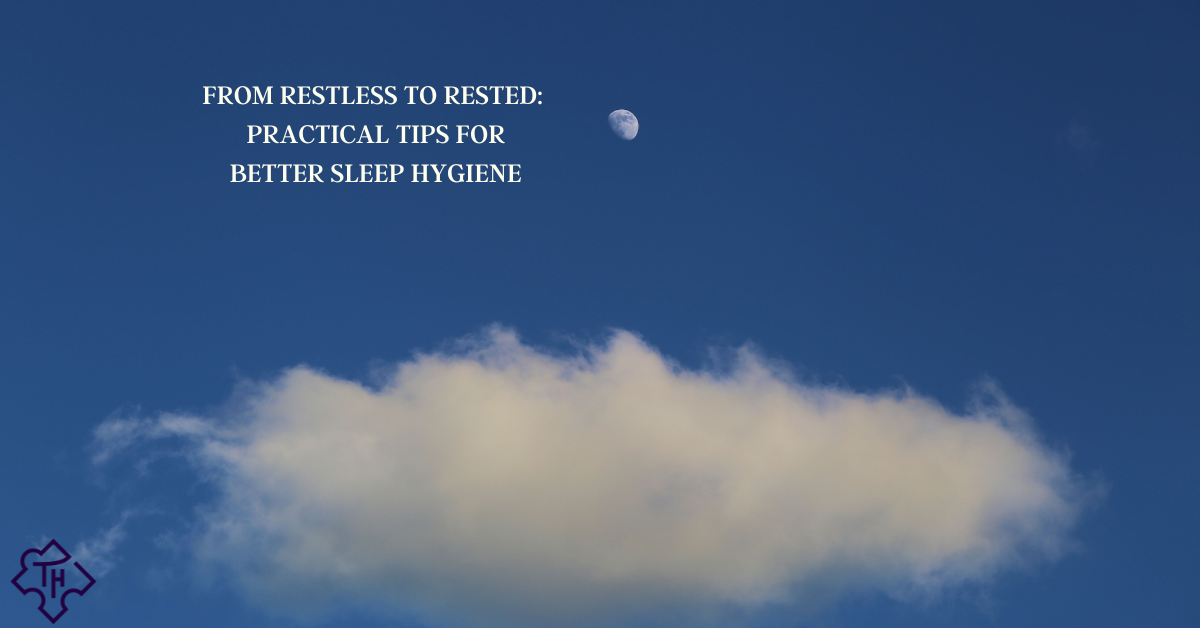From Restless to Rested: Practical Tips for Better Sleep Hygiene
By Claudine Jones, Functional Nutrition Coach
Have you ever wondered why you wake up feeling tired, even after getting a full night’s sleep or why you struggle to fall asleep at night, despite feeling exhausted? The answer could be poor sleep hygiene, which is an often overlooked aspect of our overall health and wellness. At Turnpaugh Health, we share the importance of sleep hygiene and educate our patients on how to improve their sleep quality. Here are some of the practical tips that we often share:
- To unwind and relax in the evening, opt for tranquil and peaceful activities that appeal to you. These may include: indulging in a warm epsom salt bath, taking a gentle walk in nature, reading a book, or cuddling with a pet.
- To ensure a good night’s sleep, it is recommended to switch off all spectrum lights for a period of 1 to 2 hours before going to bed (no email, tv or smart phone).
- Avoid amping up your brain by participating in mentally stimulating activities like budgeting, or engaging in stressful conversation for at least an hour before bed. Also, it would be best to not eat any food or drink that contains caffeine after 2 pm. This will help you wind down and relax before you go to bed, ultimately leading to a more restful and rejuvenating sleep.
- If you have trouble sleeping at night, avoid naps during the day.
- Temperature is important – Rooms that are too hot or too cold tend to wake us up. Most people sleep best in a cool room (60-68 F).
- Exercise regularly: Regular exercise can help you sleep better at night. Be sure to finish your workout at least a few hours before bedtime.
- Quiet the digestion – no food at all for a full three hours before bed.
- Be comfortable – You spend ⅓ of your life in bed. Find a bed, pillow and bedding that feels comfy for you, providing support for regular, deep and lengthy sleep. Make your bedroom a haven that makes you feel relaxed when you enter it.
- Establish a relaxing ritual at night – Drink herbal teas like chamomile, (Tulsi, passionflower, or valerian and lemon balm), take a hot bath with Epsom salts, or spend 10 minutes gratitude journaling.
- Optimize your ability to breathe through your nose – An air purifier is helpful to filter out mold, dust, pollen and allergens (Dr. Turnpaugh recommends and uses the AirOasis air purifiers in our offices). Some find that simple tools like nasal strips or mouth taping could help to avoid mouth breathing and/or snoring. **Make sure to rule out sleep apnea, if your snoring persists.
AirOasis iAdaptAir Air purifiers used at Turnpaugh Health: https://www.airoasis.com/
Mouth tapes used by our patients and providers: www.somnifix.com and 3M Nexcare sensitive skin tape

